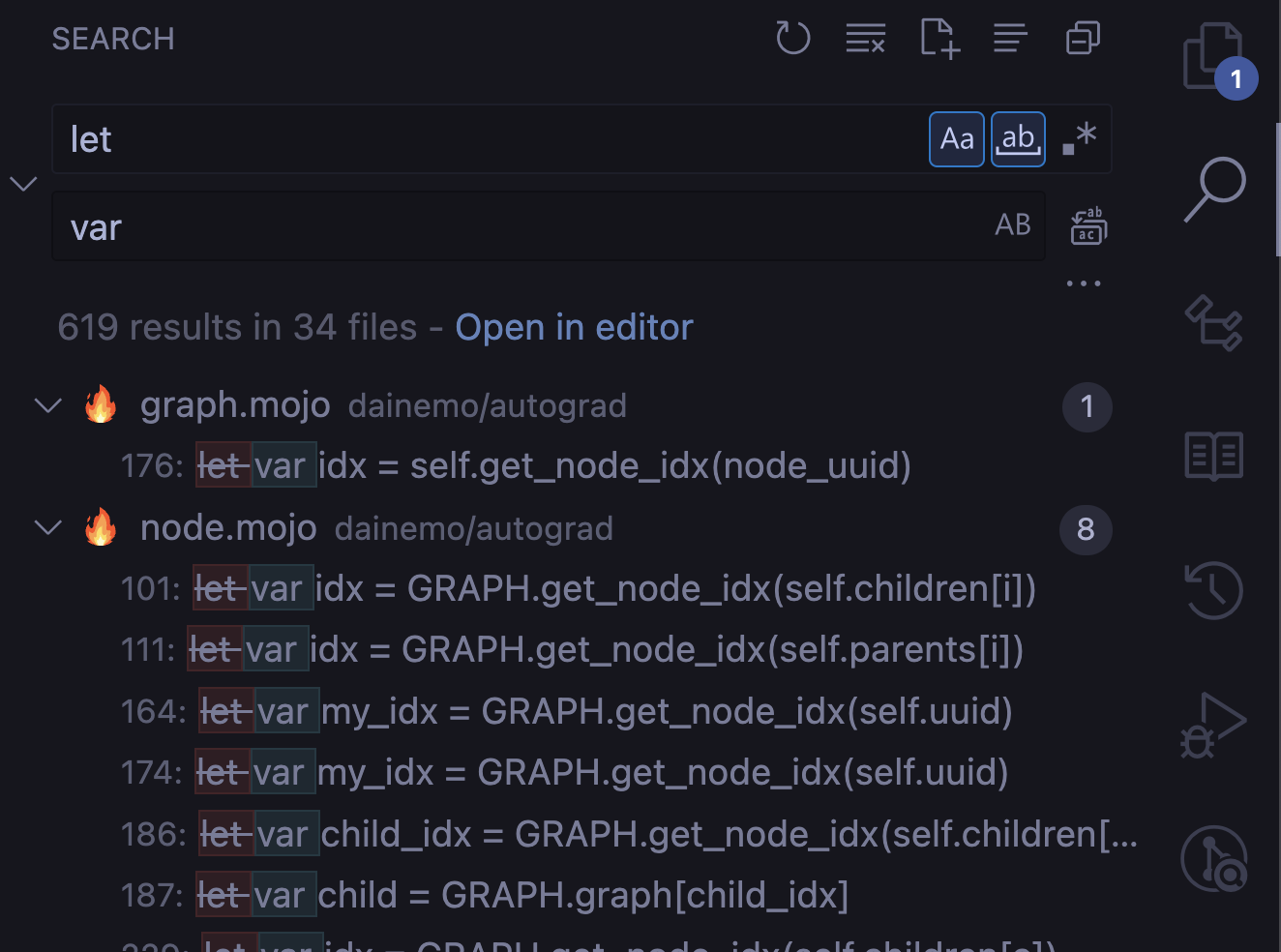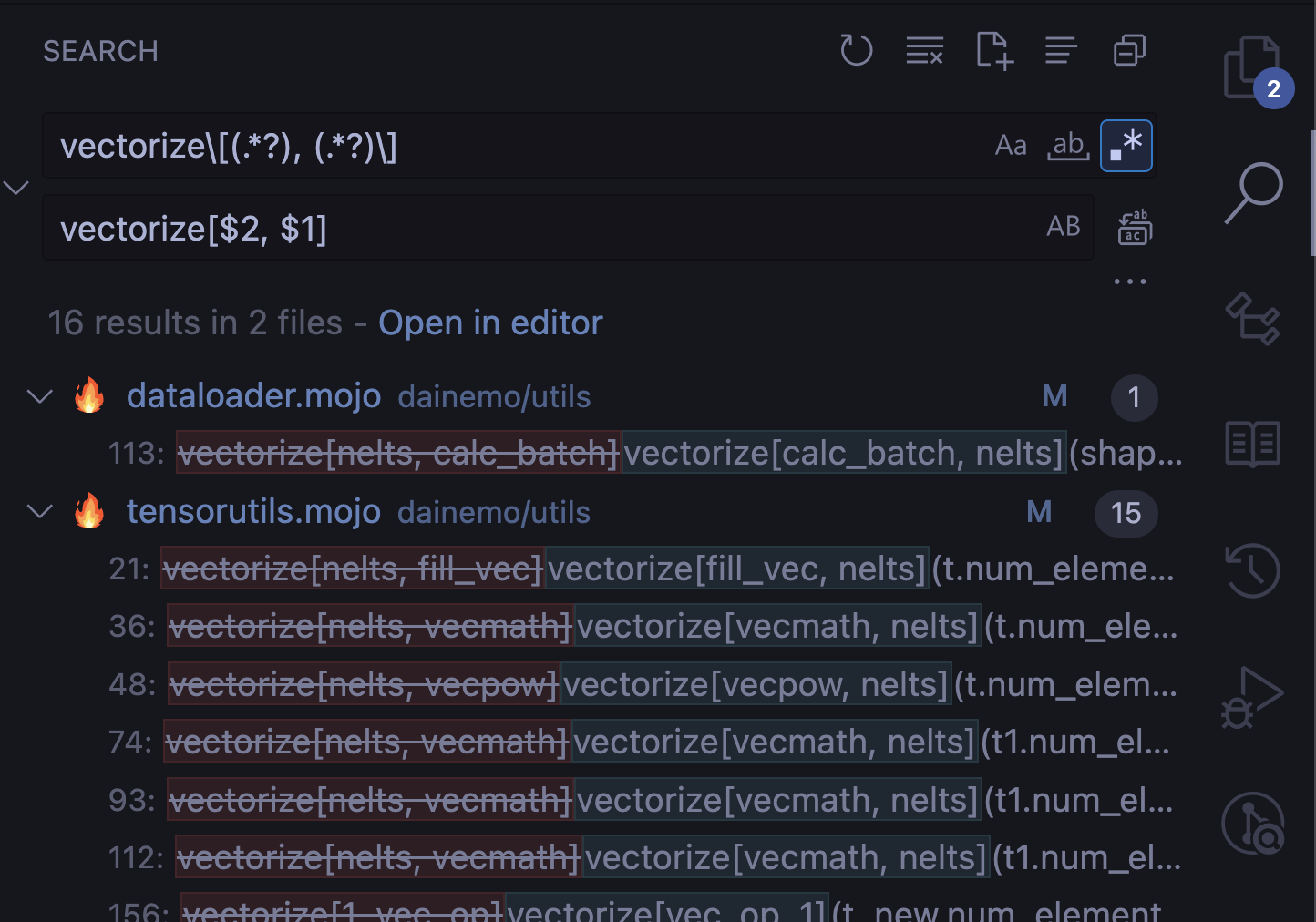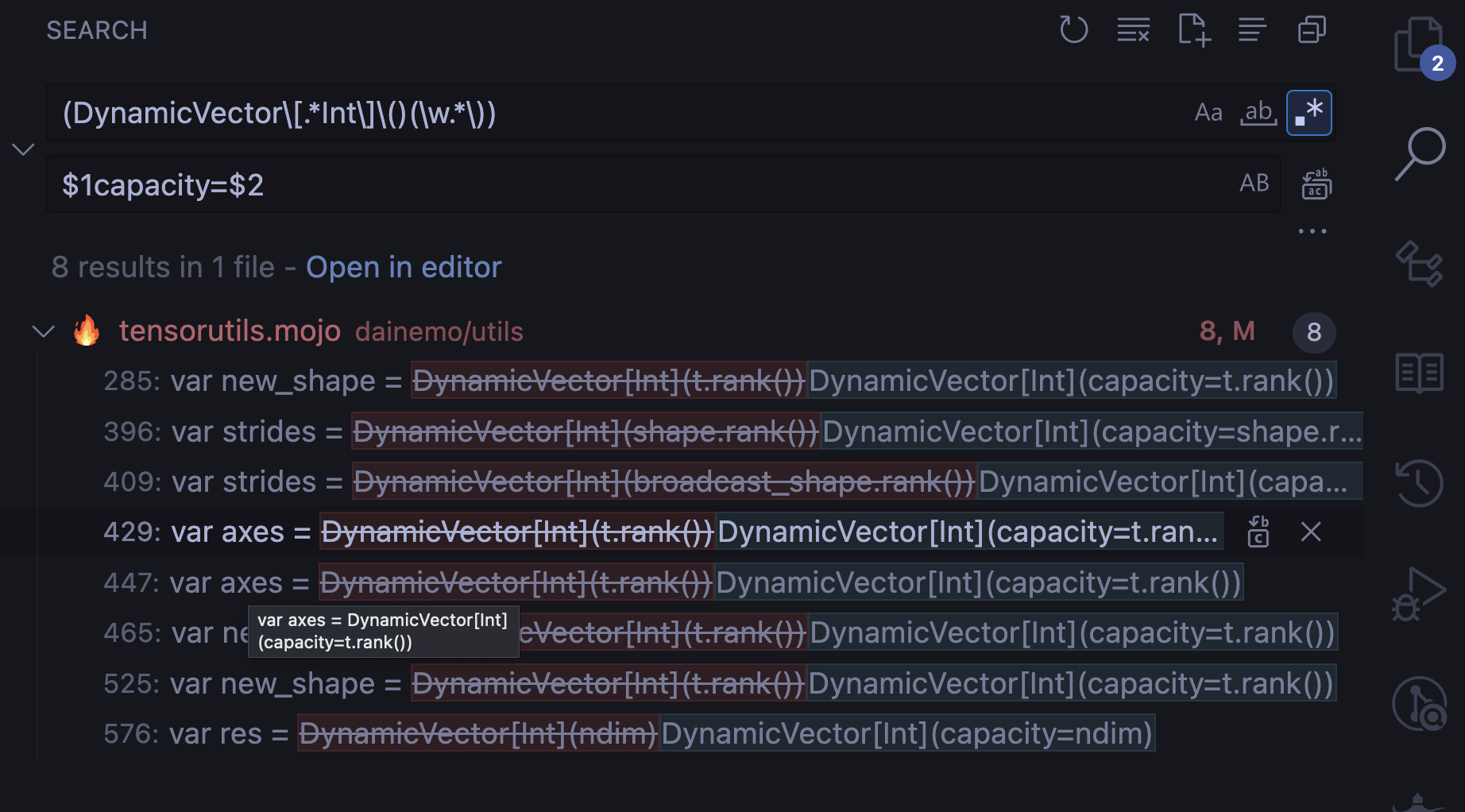Mojo🔥 upgrade guide
The following update steps are ordered from most to least common. If you have compiler warnings or errors, you can go down the list and try recompiling your program after each item.
Upgrading Mojo 0.7 to 24.1
Rename let to var
There is now a compiler warning to change the let keyword to var. But let
is a common word that you might mistakenly overwrite a comment or doc string. VS
Code has a nice find and replace feature to visualize the changes before
making them.
First click the search icon and select the icon for Match Whole Word [ab],
then click the arrow to expand the replace bar. Put let in the first bar and
var in the second, then press enter. You can change one file at a time by
pressing the Replace All button next to each file:

vectorize() and unroll() signature change
The vectorize() function now has the ability to add an unroll_factor
parameter to unroll the loop. This will often be used as a keyword parameter for
clarity like this: vectorize[fn, simd_width, unroll_factor=2](size). The fn
parameter was moved to the front of the signature to accommodate this.
You can update old code using the find and replace regex syntax to swap the parameters:
vectorize\[(.*?), (.*?)\]
vectorize[$2, $1]
In VS Code back in search, you can press the .* icon and paste regex to fix
the signatures:

Similarly, unroll has changed to match the vectorize signature, which can be
updated in the same way with the following regex:
unroll\[(.*?), (.*?)\]
unroll[$2, $1]
vectorize_unroll() function removed
You must change vectorize_unroll[width, unroll_factor, fn](size) to
vectorize[fn, width, unroll_factor](size). The regex for this is:
vectorize_unroll\[(.*?), (.*?), (.*?)\]
vectorize[$3, $1, $2]
DynamicVector constructor capacity now keyword-only
The DynamicVector struct had
a constructor that took a single integer value for the vector's capacity. This
had the effect of allowing an implicit conversion from Int to DynamicVector.
This was not intended to support implicit conversion, so capacity is now a
keyword-only argument to avoid this. To update your code you can use this regex:
(DynamicVector\[.*Int\]\()(\w.*\))
$1capacity=$2
Which in VS Code looks like this:

NDBuffer signature change
The shape of an
NDBuffer can
now default to being unknown, so the parameter list has been rearranged to
accommodate this:
For example this:
var buf = NDBuffer[rank, shape, type, address_space]()
Becomes this:
var buf = NDBuffer[type, rank, shape, address_space]()
And the shape and address_space parameters are now optional:
var buf = NDBuffer[type, rank]()
The regex to fix this is:
NDBuffer\[(.*?), (.*?), (.*?),
NDBuffer[$3, $1, $2]
Dereference Variant with []
Previously, using Variant
was unsafe with heap allocated objects, it now
returns a reference. If you had code that looks like this:
from utils import Variant
fn foo(variant: Variant[String, Int]):
if variant.isa[String]():
var s = variant.get[String]()
print(s)
fn main():
foo(String("foo"))
You now need to dereference to get access to the pointed to value with []:
var s = variant.get[String]()
print(s[])
Note that dereferencing with [] is temporary, Mojo will add auto-dereferencing
in the future so this is invisible to the user.
String method changes
Methods on String were changed to match Python naming conventions:
var s = String("Foo")
var lower = s.tolower()
var upper = s.toupper()
Has become:
var s = String("Foo")
var lower = s.lower()
var upper = s.upper()
The regex to fix this is:
\.tolower\(\)
lower()
And:
\.toupper\(\)
upper()
Implicit parameters for arguments
Previously you could explicitly specify the implicit parameters of an automatically parameterized function by passing them in the parameter list:
fn foo(x: SIMD):
print(x)
fn main():
foo[DType.int32, 1](SIMD[DType.int32, 1](4))
This was not intended to be possible and is now a compiler error. These implicit parameters are always inferred from the function arguments. For example:
fn foo(x: SIMD):
print(x)
fn main():
var v =SIMD[DType.int32, 2](4, 2)
foo(v)
There is no regex to accommodate all the variations of this, so it needs to be done manually.
Using a trait inside another trait
This no longer compiles:
trait Foo:
fn foo[T: Bar](self): ...
trait Bar: ...
struct MyStruct(Foo):
fn foo[T: Bar](self): ...
You must use concrete types inside trait methods for now, this was an unintended regression as our codebase wasn't using this feature, it will be fixed in a future release.